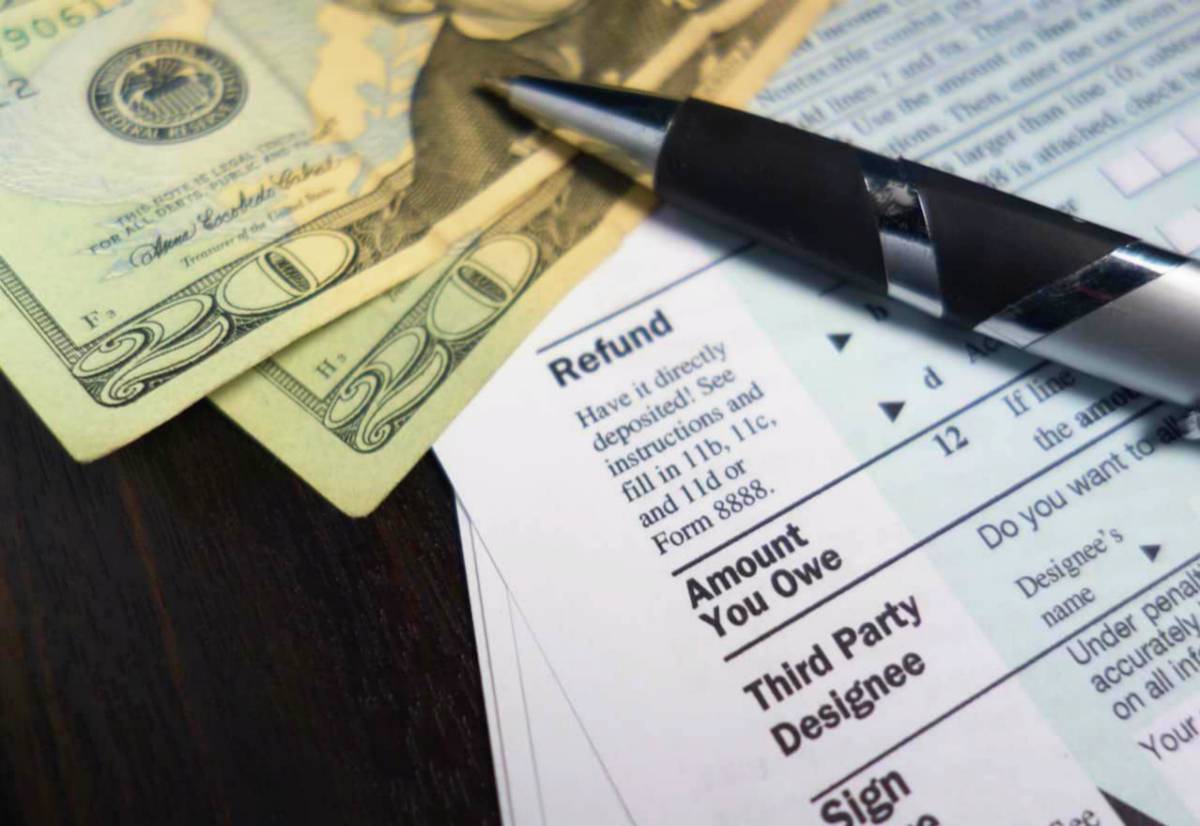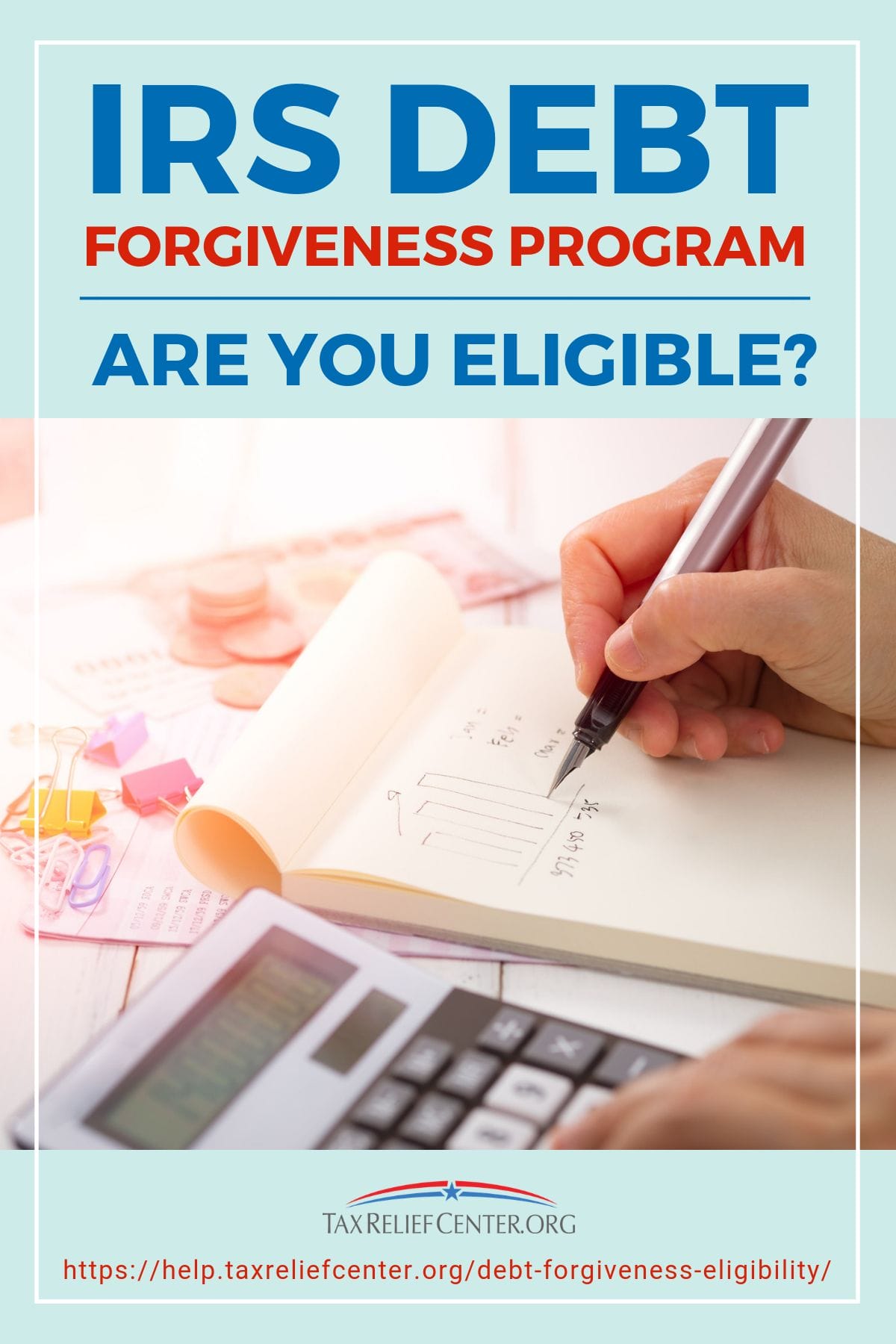Find out if you are eligible for the IRS debt forgiveness program.
In this article:
- What Are the Different Kinds of IRS Debt Forgiveness?
- What Are the Startup Fees When Paying Monthly Installments?
- Do Small Businesses Qualify for Installment Agreements?
- Can I Still Get a Tax Refund on an Installment Agreement?
- Will the IRS Refuse My Installment Agreement Request?
- Could the IRS Revoke Installment Agreements?
- How Can the Government Accept My Offer in Compromise Request?
- Do I Have to Pay My OIC in Full All at Once?
- What If My Spouse Incurs Tax Errors? Will I Also Be Liable?
- Should I Hire Professional Help?
Debt Forgiveness Program: Your Questions Answered
IRS Tax Debt Forgiveness Program Definition: A payment program providing easier alternatives for taxpayers fraught with taxes and debts beyond their means. This includes being able to pay in increments or coming to a compromise with the IRS, among others.
The program arose out of the IRS not being able to chase down each of the several millions of citizens that owe the government back taxes. There are several plans befitting taxpayers of varying backgrounds and circumstances.
What Are the Different Kinds of IRS Debt Forgiveness?
1. Installment Agreements
For those who can’t pay their debts in full, the IRS allows installment payments. This lets you pay in monthly increments until you fully pay off your debt, usually over a set period of 72 months.
To be eligible for installment agreements, one has to owe less than $50,000 in income taxes, interest, and penalties combined. They should also have filed past and current tax returns.
If you don’t end up qualifying for the installment agreements, you may still be able to do so by using Form 9465 or 433-F.
2. Currently Not Collectible Status
Sometimes, and it can be quite rare, the IRS may decide that your debt is “Currently Not Collectible.” They will put tax debts on hold when your circumstances make it impossible for you to keep up with your payments.
Once your account is currently not collectible, any form of IRS collection enforcement comes to a halt.
While they cannot levy your personal assets, your CSED is on hold. This is the time the IRS collects from you, at a 10-year cap included in the Statute of Limitations.
CSED (Collection Statute Expiration Date) Definition: This is the amount of time that the IRS can legally collect a tax balance from a taxpayer. Tax laws state this collection period, given after a tax liability assessment, be 10 years long.
During that window of time, your debt will still gain interest and penalties.
3. Offer in Compromise
If a taxpayer cannot in any way pay off their tax debt, the IRS may consider an Offer in Compromise. It lets a taxpayer pay less than what they actually owe, based on what they can afford.
What Are the Startup Fees When Paying Monthly Installments?
There are various startup fees depending on many variables. Low-income payers can expect to start at a rate of $43, while regular installment agreements can take up t0 $225.
There are many ways to cut down even more on fees, such as using a direct debit payment agreement. It’s usually cheaper and is attractive to taxpayers worried about missing their payments.
Do Small Businesses Qualify for Installment Agreements?
In order to qualify, your small business must owe $25,000 and below in payroll taxes, and filed any required tax returns. There’s no required financial statement or verification, which makes it easy to apply for, but you will need to have employees on your payroll.
Can I Still Get a Tax Refund on an Installment Agreement?

Yes, but you won’t get it until you completely pay off your tax liabilities. You have to file all tax returns on time and pay liabilities in full otherwise the agreement will be null and void.
RELATED: IRS Installment Agreement Types | How Can It Help You
Will the IRS Refuse My Installment Agreement Request?
Yes, and it’s quite common. Here are the three main reasons why the IRS could refuse your request:
- False Collection Information Statements – Any incomplete and/or incorrect information on your Form 433-A can lead the government to suspect that you’re hiding property or income.
- Previous Installment Agreement Default – If you request a payment plan via the IRS then default on those payments, the IRS won’t accept any new proposals.
- Unnecessary Living Expenses – If you live extravagantly, donate large amounts to charity, or have any reason for the IRS to assume you can pay more than what you’re offering, they will refuse your request.
Could the IRS Revoke Installment Agreements?
Yes; here are three of the most common reasons the IRS revoke payment plans:
- Failure to File and/or Pay Tax Returns – Should you ever fail to file or pay any upcoming returns, the IRS will revoke your installment agreement.
- Defaulting on Payments – If you miss payments, the IRS can opt to revoke your agreement. Usually, they’ll send you a 30-60 day notice to catch up, and you have the opportunity to reinstate the plan by paying any outstanding balance.
- False Information – The IRS can revoke your plan if they catch you intentionally providing inaccurate and/or complete information.
How Can the Government Accept My Offer in Compromise Request?
Here are three grounds on which the government accepts OIC requests:
- Effective Tax Administration – The IRS will be willing to accept an OIC request if a taxpayer isn’t contesting liability or collectability. If they can also prove that their circumstances keep them from paying their debts and cause daily hardship, the IRS will concede.
- Doubt as to Liability – If a taxpayer can prove that their assessed tax liability is incorrect, the IRS will change the total taxes owed.
- Doubt as to Collectability – If there is reasonable doubt that a taxpayer can pay off their debts in full, the IRS may settle for an offer in compromise.
Do I Have to Pay My OIC in Full All at Once?

Taxpayers should pay an OIC in full or in increments. Here are three ways to pay off an OIC:
- Short-term Periodic Payments – This agreement stipulates that you have to pay off the entire amount in 24 months.
- Lump Sum Payments – When you file your Form 656, you’ll have to pay 20% of the total amount upfront. After that, you will need to pay everything off in 5 payments.
- Deferred Periodic Payments – This is similar to short-term periodic payments in that you give the first payment along with your offer and make regular payments as the IRS reviews your OIC.
What If My Spouse Incurs Tax Errors? Will I Also Be Liable?
There is actually a thing called the “Innocent Spouse” agreement. It lets you get off scot-free when you can prove that you are completely innocent when your spouse gets into some tax errors.
Qualified applicants can present their cases via documentation to the IRS. While the “Innocent Spouse” isn’t officially a debt forgiveness program, it ensures that the liability really falls on the responsible party.
Should I Hire Professional Help?
It’s perfectly fine for taxpayers to go into debt forgiveness programs independently. However, there are simply too many details in debt forgiveness programs of which regular taxpayers have neither the know-how nor experience.
Installment agreements and offers in compromise can weigh down taxpayers with baffling jargon and concepts, which leads to mistakes and rejections from debt relief programs.
There are many CPAs and negotiators that are perfectly capable of helping you out with little to no cost. They can analyze your finances and debts and help you form a good case based on your personal circumstances.
You can go into tax debts on your own, but why endure that headache? Professionals can assist you and get you into a debt forgiveness program in a faster and more efficient way.
Taxes and debts are enough to give any taxpayer an instant migraine. Read up on the tax situations you’re getting into, and move with caution when negotiating your financial situation with the IRS.
Did the IRS accept you into a Tax Forgiveness Program? Tell us how you did it in the comments section below!
Up Next: The IRS Fresh Start Program | How Does It Work?


